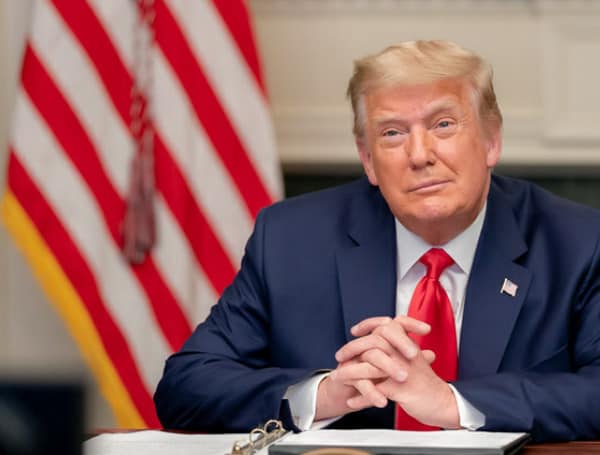The Supreme Court ruling on whether former President Donald Trump can claim immunity from prosecution for actions during the 2020 election is expected to be handed down today.
As the nation eagerly awaits the court’s decision, the implications of this case extend far beyond the fate of a single individual. They touch upon fundamental questions of presidential power, the rule of law, and the delicate balance between executive authority and democratic accountability.
Former President Donald Trump faces a four-count federal indictment for his alleged efforts to illegally conspire to overturn his loss to President Joe Biden in the 2020 presidential election.
Read: Architect Of Florida’s “No Sleeping Outside” Law Celebrates Supreme Court Decision
The criminal case, brought by Special Counsel Jack Smith, centers around Trump’s actions leading up to and during the January 6th, 2021, attack on the U.S. Capitol, where a mob of his supporters sought to prevent Congress from certifying Biden’s electoral victory.
At the heart of this high-stakes legal battle is Trump’s claim of presidential immunity, which would shield him from criminal prosecution for any official acts he performed while in office.
Trump’s lawyers have argued that an ex-president cannot be charged for their official acts unless they are first impeached and convicted by Congress. This broad immunity claim, if accepted by the Supreme Court, could effectively place the former president above the law and undermine the principle of equal justice.
The Supreme Court, with its 6-3 conservative majority that includes three justices appointed by Trump, has taken up the immunity question, much to the chagrin of critics who argue that the court should have simply let stand the lower court’s rejection of Trump’s immunity claims.
Read: Team Biden Claims That Trump Lied About Migrants Living In ‘Luxury’ Hotels
This intervention by the high court has guaranteed months of additional delay, threatening to push any potential trial past the November 2024 election, in which Trump is seeking to regain the presidency.
During the oral arguments, Trump’s lawyers appeared to backtrack from their initial broad immunity assertions, conceding that some of the alleged acts in the indictment may not have been part of the former president’s official duties.
This suggests that the court may be inclined to adopt a more nuanced approach, potentially establishing a new test for determining which official acts are subject to immunity and which are not.
Help support the Tampa Free Press by making any small donation by clicking here.
Android Users, Click To Download The Tampa Free Press App And Never Miss A Story. Follow Us On Facebook and Twitter. Sign up for our free newsletter.

